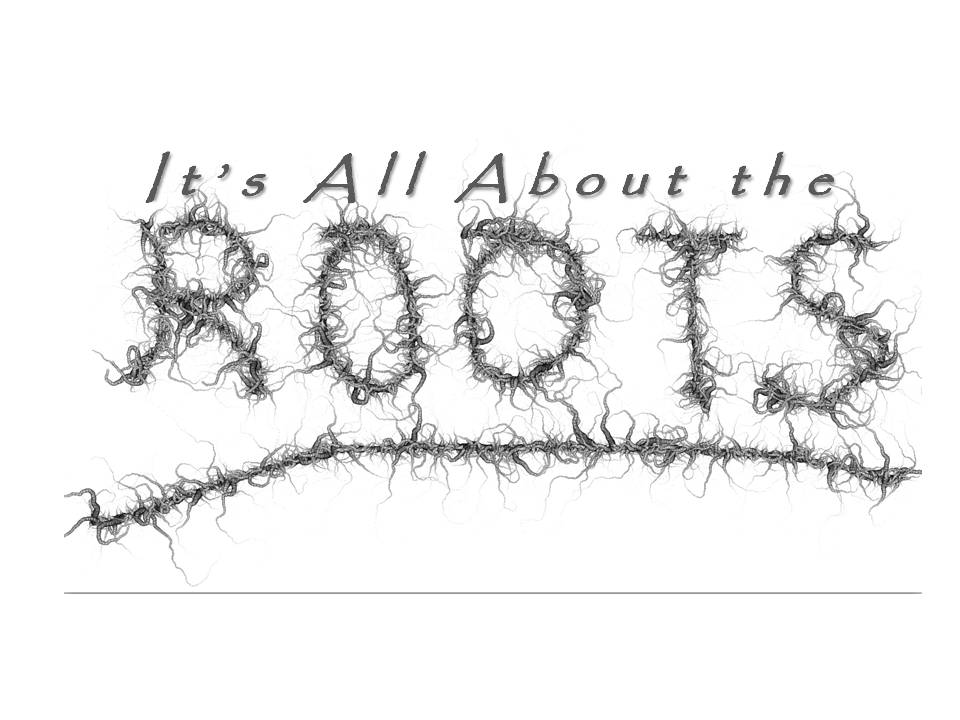Mormonism Can Be Good; Mormonism Can Be Bad
Travis and Devin are both active in the LDS Church. They both perform their church duties, pay their tithing, read their scriptures, and pray daily. However, their motivations for doing so are totally different. Travis’s reasons for church  attendance and personal commitments are due to intrinsic motivations—because of deep devotion to God; while Devin’s purposes are extrinsic motivations—because of the need to appear “good” and for social status.
attendance and personal commitments are due to intrinsic motivations—because of deep devotion to God; while Devin’s purposes are extrinsic motivations—because of the need to appear “good” and for social status.
It sounds pretty simple to say that Travis is on a higher plain than Devin and that Travis will fare better than Devin in the long run. We often hear this. (“I don’t go for others; I go to strengthen my relationship with Christ.”) But maybe it’s not so simple.
The effects of religious teachings on Travis and Devin has much to do with their psychological wellbeing. Maybe the big question needs to be: How are they internalizing the teachings?
In general, religious people have been shown to have a decreased risk for mental illness than nonreligious people. But the exact opposite can actually be true if the religion is viewed rigidly by the individuals within it. So even if Travis feels a deep devotion to God, he can also feel a great deal of intolerance and self-righteousness for performing his duties better or for a higher purpose than Devin. Conversely, Devin is more likely to be self-accepting and tolerate of the differences of others.
Further, if Travis or Devin feels religious pressure to be or appear perfect, they may also feel ashamed due to the gap between who they actually are versus who they really want to be. This discrepancy may be especially distressing for Travis, who is more likely prone to guilt- or shame-based reactions (e.g., depressive personality structure) and to struggle with self-esteem.
Travis, who is more likely prone to guilt- or shame-based reactions (e.g., depressive personality structure) and to struggle with self-esteem.
Thus, perhaps the most important question for consideration for Devin and Travis is not the degree to which each is intrinsic or extrinsic but rather how well each functions within Mormonism. Indeed, if the religion is interpreted by Travis or Devin to be strict and impermeable—with good-or-bad, all-or-none schemas—their risks for mental struggles are actually greatly increased. Simply stated, if one hold rigidly to religious beliefs, they are much more likely to struggle with depression, anxiety, guilt, and lower self-esteem than if they did not engage religiously at all (Hartz & Everett, 1989).
Indeed, people who hold religious beliefs unyieldingly often also possess these traits/beliefs as well:
- Conventionalism, self-righteousness, feelings of superiority, and unquestioning obedience to authority;
- Intolerance for non-fundamentalist views (racial/ethnics, gay/lesbian, women, religious out-groups);
- A sense that moral violators should be left to help themselves if in need;
- A need to seek confirmation for their intolerant views, discounting discrepant information in the process, thus being less open to information that contradicts their established schemas;
- Suspicion of professionals and large social systems;
- Use of scripture and leaders as sole informants of all absolute truths, which regulates all beliefs;
- Continuous defensive posture, decreasing cognitive flexibility of thought and experience, thus elevating anxiety;
- A resistance to confront existential realities;
- A demonstration of strong in-group bias;
- A strong need for certainty and an avoidance of religious doubt;
- Resistance to change (Aten, O’Grady, & Worthington, 2012).
These beliefs and behaviors can be particularly harmful to Church members who interpret Mormonism rigidly and feel that they must appear and be “perfect.” Missionaries, for example, who feel pressured to conform and “make the cut,” have higher levels of depression, stress levels, and neurotic thinking and behavior than those who accept their humanity and do not demand perfection of themselves and others (Navara & James, 2005).
People who are struggling with such “less than” tendencies might be benefited in the following ways:
- Connecting with idealized leaders or historical figures. Connecting with a respected leader who will “be real” with a struggler can help the individual not feel the need for such perfection by talking about their own humanity. Looking into historical figures can also help people see their flaws, while considering how that person might have handled a difficult situation.
- Questioning the need for social approval. It can be helpful to ask: “Why is it so
 important to receive validation from others in the LDS Church?” “Is it really a big deal to miss scripture study one day? What’s the worst that can happen? Do you really think God will punish you for setbacks/struggles?” Delving into cognitive flexibility, God’s mercy, and considering the need for managing social impressions can go a long way.
important to receive validation from others in the LDS Church?” “Is it really a big deal to miss scripture study one day? What’s the worst that can happen? Do you really think God will punish you for setbacks/struggles?” Delving into cognitive flexibility, God’s mercy, and considering the need for managing social impressions can go a long way. - Working on empathy. Empathy has been linked to a number of positive psychological factors, such as greater interpersonal functioning, frequency in pro-social behaviors or altruistic acts, and likelihood of forgiving others. When we consider God’s empathy, it can also help us be gentle and loving with ourselves and others as well.
Conclusion
- Religion can be a great means of warding off mental illness—increasing one’s hope and optimism—but if religion is not applied, taught, and internalized correctly, it can have the opposite effect. We need to be careful of the messages we are receiving and sending concerning conformity and
 perfection. The truth is, life is messy. That’s true now and it’s true historically. We need to be better at teaching that and confessing when we mess up, when we didn’t have perfect vision, when we were wrong–this goes for mistakes the Church has made and the humans in it (that’s you and that’s me). It’s okay to not be perfect. We have the atonement. We can repent. We need to model that.
perfection. The truth is, life is messy. That’s true now and it’s true historically. We need to be better at teaching that and confessing when we mess up, when we didn’t have perfect vision, when we were wrong–this goes for mistakes the Church has made and the humans in it (that’s you and that’s me). It’s okay to not be perfect. We have the atonement. We can repent. We need to model that. - If we are not careful, we can inflict great harm that can have long term detrimental effects on our members. Indeed, rigidity can be detrimental for psychological health. Rigid cognitive thinking has been shown to increase depression, suicidality, anxiety, guilt, low self-esteem, and “fears of divine punishment” (Hartz & Everett, 1989). Many of these relationships have been found both for individuals who come from strict religious backgrounds and for individuals who leave the Church as well.




9 Comments
Tom Irvine
Here is a related issue… When I was a missionary in the early 1980s, only three or so missionaries went home early from my mission. This was in the era before “the bar was raised.” In each case, the missionary just decided he was done and wanted to return home. My anecdotal observation is that the early return rate of missionaries has increased significantly in recent years. What are your thoughts on this? The screening processing in my day was relatively simple. Nowadays, the application process is more rigorous. So the current group of missionaries should be better capable and prepared. Even so, many are returning home early. Thank you, Tom Irvine
dphartline
I have talked to several missionaries about this and I think you are right as to the connection. I asked a missionary recently what his greatest fear was and he said, “Returning home early from my mission.” After further inquiry, he indicated that his fear was in having to go home early for any reason–sin, medical, or otherwise. There seems to be no honor in an early return, and in fact, there is often great shame regardless of the reason. I know many sad stories. It is often a life-changing situation for these people. It can also be deeply damaging for those men who do not choose to serve a mission and some of them feel labeled for life. The raising of the bar has actually seemed to also raise the bar for mental struggles as well…
Tom Irvine
Then there is scrupulosity, which is a form of OCD focused on religious rules, excessive anxiety about committing a sin, etc. I have had some of this in my younger years and have a family member who currently has a severe case. He still believes in the gospel but no longer attends church while he undergoes a long, difficult healing process.
dphartline
I can also relate to scrupulosity OCD as well. Years ago, after I was severely traumatized by a bishop, I went to the stake president for help. I loved this man and I still do but his advice to me was very damaging. He told me to not think about the traumas anymore, that they were evil acts I did not deserve. Such tender counsel but the way I internalized it was not good. I felt I had to follow his counsel with exactness, that his words were my lifeline to healing–and many even reminded me of his counsel when I did try to talk to them about the traumas. So in an extreme effort to ward off these violating thoughts that were constantly coming into my mind, I memorized 2 Nephi 4 and the Proclamation on the Family. Whenever these memories and thoughts came into my mind, I would repeat these memorized pieces. I did this daily, sometimes more than once a day, because of the constant struggle I was having. It took hours of my day. I feel like this well-intended man actually handed me a prescription for OCD. If I had received this counsel when I was a teen or in my early twenties, which is when the onset of OCD is usually manifested, it would have likely become a full-fledged disorder.
Tim
Yes! It’s about following the spirit, not the letter.
Richard L.
Not a member anymore but I didn’t see much good when I was a member. It was a hard place to be.
Jeri Streamer
This is an outstanding article
Darren
I think you are right on here. A lot of people do not put it altogether. It is sad that people take advantage and abuse those of certain mindsets.
B. Burley
I LOVE THIS! USING of the atonement and understanding why we have it is so key. This is why I don’t try to change people in the church but to bring them to Christ….the true Christ not the made up versions we sometimes make up in our own heads. The REAL Christ who is soooooo kind and loving. The one who never hits me on the head and tells me to do better. The patient Christ. Mathew 11:28-29 Come unto me, all ye that labour and are heavy laden, and I will give you rest. 29 Take my yoke upon you, and learn of me; for I am meek and lowly in heart: and ye shall find rest unto your souls.